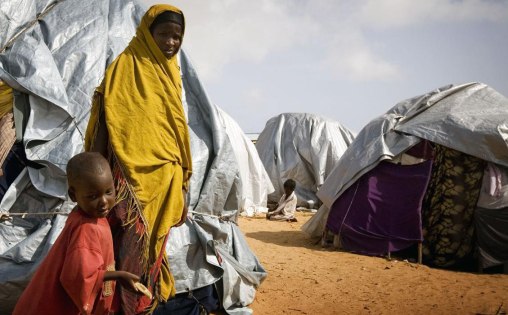NEWS: More resources needed in Horn of Africa to maintain relief effort, says UN
UN News Service/ ACP Press,7 November 2011: The massive humanitarian response to the food crisis in the Horn of Africa has eased the suffering of thousands of people, but more resources are needed to save the lives of hundreds of thousands of children in famine-hit areas of Somalia, the United Nations Children’s Fund (UNICEF) said in a progress report on the crisis.
”We have saved many children, in Somalia, in the refugee camps in neighbouring countries as well as in the other regions in Kenya, Ethiopia and Djibouti hit by prolonged drought, escalating food prices and conflict,” said Elhadj As Sy, the UNICEF Regional Director for Eastern and Southern Africa, releasing the report entitled Response to the Horn of Africa Emergency.
A total of 13.3 million people needed assistance in Ethiopia, Kenya, Somalia and Djibouti as a result of what aid agencies said was the worst drought in the region in six decades.
“Due to the magnitude of the humanitarian crisis, we have to increase our immediate response and at the same time lay the foundation for long-term development to prevent a similar catastrophe from happening again.”
He called for the scaling up of integrated interventions in health, nutrition, food security, water and sanitation, education and child protection.
More than 450,000 Somalis have fled to refugee camps around Dadaab in north-eastern Kenya, including 100,000 since June. Another 183,000 Somalis entered Ethiopia. Some 20,000 other refugees from Somalia went to Djibouti. Famine was formally declared in six areas of Somalia.
Thousands of children have already died, and more than 320,000 – half of them in central and southern Somalia – are suffering from life-threatening malnutrition.
According to the latest situational overview,in Somalia, the most severely affected country, 4 million people — or 53% of the country’s a population — remain in crisis nationwide. The Food Security and Nutrition Analysis Unit (a project funded by the European Commission and USAID and implemented by the UN FAO) estimates that 450,000 out of 1.3 million children under the age of 5 in Somalia are malnourished.
Of the 4 million in crisis in Somalia, 3 million people are in the country’s southern regions.
Famine has been declared in the following areas of Somalia: Bay, Bakool agropastoral livelihood zones, all areas of Lower Shabelle, the Balcad and Cadale districts of Middle Shabelle, the Afgoye corridor IDP settlement, and the Mogadishu IDP community. 750,000 people are in famine, a 46% increase from 350,000 in July.
The latest reports estimate that around 2.2 million of the 4 million food-insecure people in Somalia have now received food and other assistance since the famine was declared in July. This is a significant increase since August, when about 1.3 million people were receiving. From 1-24 October, humanitarian partners facilitated improved access to food and markets for nearly 900,000 people.
Despite concerted efforts, significant humanitarian needs remain throughout the country.
At the same time, UNICEF and other international partners across the Horn of Africa have achieved important results on which to build, according to the report.
Over the past three months, UNICEF has delivered 10,000 tons of assorted life-saving relief supplies to the Horn of Africa by air, land and sea, and supported the treatment of 108,000 severely malnourished children in therapeutic feeding centres. Some 1.2 million children have been vaccinated against measles, and an estimated 2.2 million people benefited from access to safe water. About 48,000 children were provided access to child-friendly environments.
(Photo credit: UN News Service)
-END-
